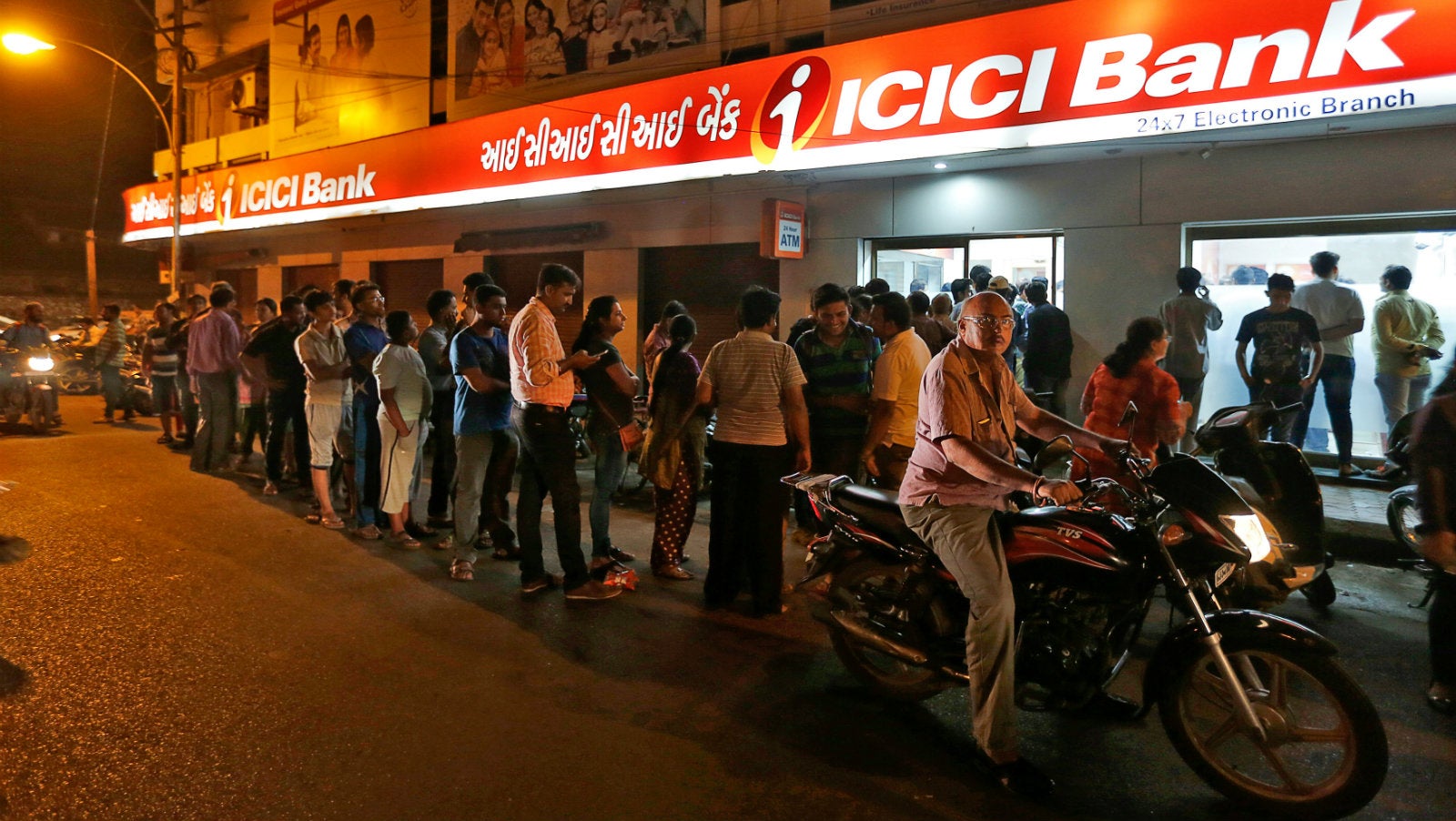One week of demonetisation in India: the good, the bad, and the ugly
Just seven days and Indian prime minister Narendra Modi’s massive demonetisation exercise has snowballed into an unprecedented financial emergency in Asia’s third-largest economy.


Just seven days and Indian prime minister Narendra Modi’s massive demonetisation exercise has snowballed into an unprecedented financial emergency in Asia’s third-largest economy.
On Nov. 08, Modi announced that all notes in denominations of Rs500 ($7.40) and Rs1,000 ($14.70) would be illegal in the country. These were the highest and most popular currency denominations in India, forming 86% of the currency in circulation by value. Indians have until Dec. 30 to deposit all the notes in banks and post offices to get them replaced.
Modi’s decision was to tackle the corruption, black money, and fake currency that often finance terror. But Indians are panicking. There are long queues outside banks and ATMs, and the poor, unbanked section of the population is not really sure what it should do with these notes.
It’s not all bad news, though.
The good
While consumers could be cash-strapped for the next few weeks, which could hit spending, the move is a boost to India’s image and economic prospects in the long term. For one, Modi’s masterstroke would mean more people disclose their real incomes and pay taxes, which is good for the government’s coffers. (Only about 1% of the country’s population pays income tax currently). Brokerages have estimated that the clampdown on unaccounted cash could bring in as much as $45 billion for the government. This unprecedented stash of cash could help Modi spend more on education, health, and housing.
India’s banking sector, which is fighting toxic loans and liquidity problems, should also bring in benefits. Some Rs1.5 lakh crore ($22 billion) in deposits have been collected by banks since the demonetisation announcement, the Times of India reported on Nov. 14. Banks can use these funds to address their liquidity requirements. Meanwhile, those with no bank accounts would now be forced to open one in order to deposit the now-illegal notes, in turn helping Modi’s Jan Dhan Yojana (people’s wealth program),
India’s internet startups are cashing in on the opportunity, too. For instance, ride-hailing startup Ola—Uber’s competitor in India—and Paytm, a mobile wallet firm, have seen a surge in new registrations as people move from cash to digital payments. Within 15 hours of Modi’s announcement, Ola saw an increase of 15 times in recharge volumes on its e-wallet. Cash-on-delivery transactions, costly and time-consuming for e-commerce retailers, should drop at least temporarily.
The bad
As the supply of money dries up, small and medium-size business are finding it difficult to pay daily wages and raw material costs, among other expenses. (Indian small businesses typically rely heavily on cash for their day-to-day operations.) While the government on Nov. 14 tweaked certain rules and increased withdrawal and deposit caps, it should still be a tough few weeks.
Some critics say not enough measures were taken to handle the deposits and withdrawals that were expected following the announcement. Others question the timing of the move and allege political motivations, particularly with key states preparing for elections. It is important for the ruling Bharatiya Janata Party (BJP) to win them if it is to continue to show its strength in the country.
Some Indians have devised workarounds to use up the banned notes. Certain government services such as the railways still accept these notes. So those with the now-invalid notes book expensive train tickets, cancel them, and get refunded in new notes. So the Indian Railways had to stop refunding in cash.
Gold prices in India are up as many people with undeclared income rushed to buy gold soon after the announcement.
Weddings are getting postponed as bills to wedding halls, florists, and caterers are typically paid in cash across India.
The ugly
For some, the long queues turned fatal. There have been suicides reported, too. In the state of West Bengal, a man allegedly murdered his wife after she returned home from the ATM with no money; reports indicated that he expected her to wait in the queue longer.
There have been reports of doctors denying treatment because patients had only Rs500 and Rs1,000 notes on them. Some hospitals have refused to admit even critically ill patients. In Patna, Bihar, the family of a three-year-old rape victim reportedly had trouble getting an ambulance driver to take her to the hospital as he allegedly refused to accept the banned currency.